
Atul Paliwal
Driven by innovation and armed with over 9 years of hands-on experience in product management, I am Atul Paliwala seasoned Product Manager dedicated to crafting cutting-edge mobile and web applications that redefine industry standards. My journey in product management has been marked by a relentless pursuit of excellence, guided by strategic planning, agile methodologies, and a deep commitment to user-centric design.
- Role
Product Manager
- Years of Experience
11 years
- Professional Portfolio
View here
Skillsets
- Firebase Crashlytics
- Strategic Planning
- Stakeholder Management
- Salesforce CRM
- RESTful API
- Product Management
- MongoDB
- Market Research
- Go-to-market strategy
- Jira
- Ci/Cd Pipelines
- AI integration
- Agile methodologies
- Adobe Creative Cloud
- Postman
- Kibana
- Google Analytics
- Trello
Vetted For
- Roles & Skills
- Results
- Details
- Senior Product ManagerAI Screening
- 82%
- Skills assessed :Product Lifecycle, Product Management, B2B, SDLC, UI/UX, MBA
- Score: 74/90
Professional Summary
- Jun, 2018 - Present7 yr 4 months
Product Manager
Sarv Webs Pvt. Ltd. - Feb, 2017 - Feb, 20181 yr
Assistant Manager
CRM Services India Pvt. Ltd. - Jan, 2016 - Dec, 2016 11 months
Technical Support Engineer
The Phone Support Pvt. Ltd. - Apr, 2014 - Jan, 20161 yr 9 months
Technical Support Executive (Tier 2)
CRM Services India Pvt. Ltd.
Applications & Tools Known
Jira

Postman
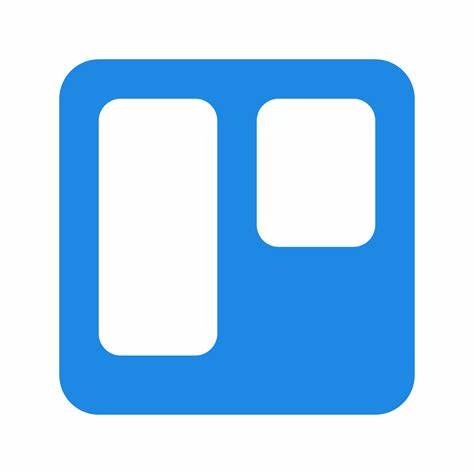
Trello
.png)
ClickUp

Bitbucket
Figma
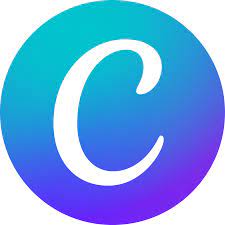
Canva

Microsoft Excel

Microsoft Word
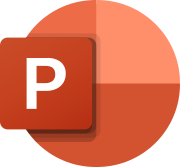
Microsoft PowerPoint
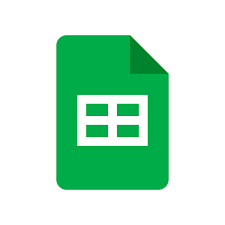
Google Sheets
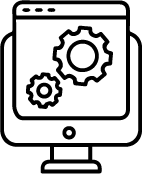
Excel
.png)
Firebase
.png)
Google Analytics
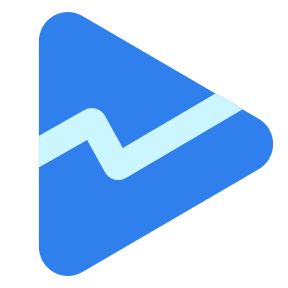
Google Play Console

MongoDB
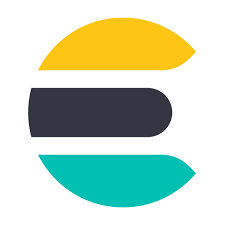
Elasticsearch

Kibana

Confluence
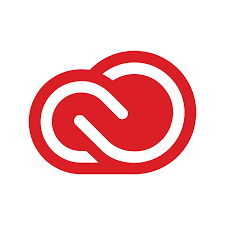
Adobe Creative Cloud
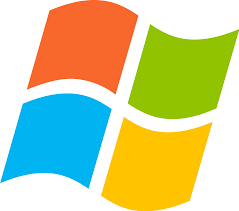
Microsoft Windows

MS Office
Work History
Product Manager
Sarv Webs Pvt. Ltd.Assistant Manager
CRM Services India Pvt. Ltd.Technical Support Engineer
The Phone Support Pvt. Ltd.Technical Support Executive (Tier 2)
CRM Services India Pvt. Ltd.Achievements
- Handling Video Conferencing, Cloud Telephony, SMS marketing, Email Marketing, Workspace platform and several other B2B and B2C products at Sarv.com
- Sarv Wave was one of the runners-up of innovation challenge for the development of video conferencing solution under the Digital India initiative by the Ministry of Electronics and Information Technology
- 500K + Downloads and 4 Star rating of Naam: Caller ID & Block app on Google play
- Achieved over 500K downloads and a 4-star Play Store rating for Naam: Caller ID & Block
- Generated 7 crore INR in revenue with Sarv Wave
- Conducted over 25K assessments in its first year
- Boosted customer satisfaction by 20%
- Reduced support tickets by 10%
- Improved customer satisfaction by 15%
- Reduced tickets by 10% within 3 months
- Achieved a 95% resolution rate
- Achieved a 90% first-contact resolution rate
- Reduced average response time by 20%
- Achieved over 500K downloads and a 4-star Play Store rating for Naam: Caller ID & Block app
- Generated 36 crore INR in revenue with Sarv Wave SaaS video conferencing solution
- Conducted over 25K assessments in the first year of Sarv Wave
- Boosted customer satisfaction by 20% and reduced support tickets by 10%
- Directed on-premises deployment of SaaS call center solution for UP112 emergency response system
- Achieved project milestones ahead of schedule and reduced costs by integrating freelance talent
- Achieved a 99% crash-free user experience through data-driven approaches
- Improved customer satisfaction by 15% and reduced tickets by 10% within 3 months for Adobe Creative Cloud
- Achieved a 95% resolution rate for complex technical issues
- Achieved a 90% first-contact resolution rate and reduced average response time by 20% for Microsoft Windows and MS Office
Testimonial
The Phone Support pvt. ltd.
Shankar SomjaniI had worked with Atul between 2015-2016. He is one of the dedicated and hard working employees I had the pleasure of supervising. He is a hard working, dedicated and sincere employee
The Phone Support Pvt. Ltd.
Priyavrat Singh RathoreI can recommend Atul as a person with great proficiency and deep experience of solutions. He is a self motivated and a smart individual. Creative strategist with great interpersonal skills. If you ever need someone to deliver under pressure, no slip-ups, just results, he is your go-to person.
Sarv Webs Pvt. Ltd.
Aditya RaoAtul is a real pleasure to work with and has unique experience in clam, leadership, management. He is a detail-oriented, target-oriented, ambitious, and powerful co-worker, his knowledge is vast and thorough. I would recommend him for any project that requires the very best in it, execution. He is not only a reliable and forward-thinking technical account manager but also an inspiring team player. For Atul, the job is always the most important thing to do. Very positive attitude towards work. He is an asset to any business.
Major Projects
Naam Caller ID & Block app
Sarv Wave video conferencing SaaS
Education
PGD in Finance
Narsee Monjee Institute of Management Studies (NMIMS) (2022)MCA
Rajasthan Technical University (2016)BCA
University of Rajasthan (2009)
Certifications
- Credential ID : UC-8756e028-a69c-477e-9943-911009516484
Advanced Product Management Leadership & Comm.
Udemy (Jul, 2023)
Credential URL : Click here to view - Credential ID : UC-1c991bff-417-425d-a8d3-547acdbd994c
Advanced Product Management Vision, Strat. & Met.
Udemy (May, 2023)
Credential URL : Click here to view - Credential ID : UC-cff03afa-a153-4a72-b9e1-5b305b38529
Become a Product Manager
Udemy (May, 2023)
Credential URL : Click here to view Generaxve ai for product managers mini simulator (gopracgce, inc)
- Credential ID : UC-51d948de-f7£2-4aaf-aaa9-e4c67369536c
Agile PM 301 - Mastering Agile Project Management
Udemy (Aug, 2022)
Credential URL : Click here to view - Credential ID : UC-Obb1f394-9cc6-4971-9cb3-6e7641fad02
The Complete Instagram Marketing Masterclass 2023
Udemy (Apr, 2023)
Credential URL : Click here to view Introducxon to generaxve ai (amazon web services)
Advanced product management: leadership & communicaxon (udemy)
Advanced product management: vision, strategy & metrics (udemy)
Agile project management (udemy)
Become a product manager (udemy)
The complete instagram markexng masterclass (udemy)
Generative ai for product managers mini simulator (gopractice, inc)
Introduction to generative ai (amazon web services)
Advanced product management: leadership & communication (udemy)
Salesforce certified ai associate
Salesforce certified agentforce specialist
Agile project management
Generative ai for product managers mini simulator
Introduction to generative ai
Advanced product management: leadership & communication
Become a product manager
The complete instagram marketing masterclass
Advanced product management: vision, strategy & metrics
Interests
AI-interview Questions & Answers
Hi, I'm Atul. So I have been working as a product manager in a software as a service provider company, ServWebz Pvt. Ltd. since last six years. And there I have worked on many products, major products on which I have worked. One of them is a video conferencing application, which was a customized video conferencing application we have developed for Income Tax Department of India. And that application has been hosted in National Information Council's data center. And in that application, they have certain customized requirements for Income Tax Department's scrutinies. So we have integrated complete video conferencing application in Income Tax business application, which is ITBA. So our product was completely API based. So we have integrated video conferencing application and their Income Tax business application. And another one is, I would say a major application which is in a B2C segment. That is an caller ID application. And the name of that application is NAM and you can find it over Play Store which have more than 500k downloads and four star rating. So I have been working as a product manager from scratch for that mobile application as well. And in the pipeline, we are trying to develop, not only trying, we are going to provide that application to Income Tax Department for Income Tax business application 2.0. So that application is a replacement of G Suite, Google's G Suite or you can say Microsoft 365. So that application is a collection of multiple applications, a single platform for email client, storing files over drive, one-on-one and one-to-many chat like Slack and video conferencing integrated into that, a single application like single sign-on and users can use their email, use their drive, chat with other team members and communicate over video conferencing, SMS will be integrated into that. So these are major projects on which I have worked as a product manager. Apart from that, I have knowledge of cloud telephony applications. So my company have provided a complete call center solution for UP 112, emergency contact center for Uttar Pradesh Police of India. That's all a brief about my experience in product role.
So, uh, as, uh, I inform discussed in, uh, my last answer, uh, so, uh, I have been working on different products. So if I would say, uh, launching a product, uh, a customer solution, you can say, or a success. So success, uh, for a product is if we have developed any application. So the reason behind developing that application and if we are, uh, able to achieve that, like, uh, income tax department, uh, asked us to develop a customized application, and they wanted to integrate that application in their existing income tax business application. So we have developed that, uh, video conferencing application that have certain requirements like encrypted APIs So no one else can access that application even if, uh, they got the APIs, uh, from any mean. So, uh, we have provided encrypted APIs. And another one, uh, they required a specific functionality. Uh, if assessment officers joins that meeting, they do not need to enter their name or their IDs, though they receive a separate URL to join every time and a a unique password. So whenever they enter the password, they join the meeting immediately, and a system generated a random script will appear in the name section. So identity of assessment officer will not be revealed, and their face will not be revealed even if their camera will be turned on. So our application, uh, distort their images. So as I see, um, that means income tax payer will not be able to see, uh, who is the officer. So this is to reduce the corruption in income tax department. Remove the corruption. So as a assesses, that means, uh, income taxpayers will not be able to view their identity, and they cannot, uh, give bribe to them. So, uh, these kind of features we have developed. And, uh, when we provided that application to income tax department, so within, uh, Q1, they have completed more than 50,000 income, uh, tax scrutiny meetings over our platform, so which I would say is a success. Okay. And, uh, other, uh, I would say, uh, we have developed an b to c segment application, which is, uh, NAM caller ID application. So without even doing a large marketing, uh, we are able to achieve more than 500 k installs over Google Play Store and 4 star rating. And, uh, that application, uh, one point which is our USP is we do not ask our users to share their contact access. So contact access is not amended thing. So which is a privacy factor for our users. Uh, so which we found, uh, that users are more concerned about privacy. So we do not ask our customers to share their contact. And when we launched our application, we are able to achieve 500 k and, uh, going forward
So as a PM role, success metrics depend on product, okay, so product to product success metrics is different success metrics, I would say for any application is one success metric is we integrate Firebase events in our application. So we track those events count over Firebase and over Google Analytics. Whenever we add any module, any feature in our application, we track those and we track the user journey. How many users are using that particular feature? Is that feature is working properly? How many crashes we are getting is our product crash free? So most of my products are above 95% crash free users, we can see over Firebase, crash analytics and other success is retention. So we try to improve our retention percentage day by day, the daily active user and monthly active users. So if we are able to achieve those daily active users on a certain period, like in a quarter, we are able to increase daily active user and monthly active user by a certain percentage for 5% or 10%. That is a success we got after releasing any new module or new feature in our product. And apart from that, the success metrics is also business goals if there is any paid feature, specific paid feature we have added in our product. Although B2B segment is different, B2C segment is different, both of them have different revenue models. So there are different kind of success metrics as well for in terms of revenue generation.
So, uh, I have worked as a software engineer, uh, in my initial time of my career, uh, I worked as a PHP developer, but, uh, that not for a long period of time. So that was my training period. So I was a PHP developer. And, uh, later as a, uh, quality analyst, I did not work as a on role quality analyst, but in my project management and product management skills as a technical account manager, I have worked I have worked as a product manager. We do, uh, user acceptance testing ourself before, uh, providing demonstration to users. So, uh, those experience and, uh, my educational background. So I did bachelor's in computer application and master's in computer application. So I have a vast knowledge of computer applications and, uh, their software development life cycle and even a product life cycle. So, uh, those experience is definitely helping me to understand, uh, the development, and, uh, it's easier for me to communicate with technical or nontechnical, both kind of stakeholders. And even with my development team, I have been handling around 20 to 25 people as a people manager as well in my current role. So where I have been handling developers, designers, content writers, QAs, everyone is directly reporting to me as a people manager as well. So in my current role, uh, I'm doing it since a long time. And in managerial roles, I have been working for more than 7 8 years. Uh, I have worked in technical support processes in Microsoft and Adobe. Uh, so I have been handling Teams since more than 7, 8 years. So I have a good experience of software development life cycle.
The type of products, I would say, I have worked on B2B segment, which is business-to-business applications like cloud telephony services and SMS marketing, email marketing, voice broadcasting, video conferencing, audio conferencing, and latest product which is in pipeline which we are going to provide to Income Tax Department, which is a workspace which includes a single sign-on for multiple applications, which is email client and Google Drive-like drive option, Slack-like chat option, integrated video conferencing like Google Meet. So that kind of business-to-business products I have been working, and we call this segment as a SaaS software as a service. And I have been working as a product manager for NAMM caller ID application, which is in B2C segment, business-to-customer. So we have uploaded that application over Play Store, and user can download that application and use it over their Android phones.
So, uh, yes. I have experience in UX and UI designing. So I have been learning, uh, so if you say, uh, see, uh, my LinkedIn profile, the certifications I have done. So I have gained, um, knowledge about UI and UX. I have been doing some certification in Salesforce, uh, as well learning Salesforce skills, and they are AI associate and AI specialist certification. Uh, I'm learning those trails. And, uh, in that those trails and even in my product management journey, in my project manage, product management certifications. I have learned UI UX UI UX expertise and, uh, in my current role. So I have developed those UIs and set with my designers, with the stakeholders, and, uh, created, uh, those designs from scratch over the in Figma, we have created some wireframes, then we developed prototypes and then final designs. So user experience have a different than UI designing. So user experience is how user is going to experience a soft use it. Like, currently, uh, the part, the color which, uh, you are using, that is a part of the UI. Uh, on this screen, currently, on the exam, I can see uploads logo, the button, how they in upload recording in yellow color. The timer is running. So this is, uh, the color which, uh, we are going to use is, uh, a UI part. There, uh, it will be a square. It will be a circle. But, uh, when as a user, I'm using it, uh, whether I will be able to understand that button, what, uh, that button going to do without, uh, even knowing I'm using this platform for the first time. So that is a user experience whether I will be able to understand. I have to click this button where I have to, uh, watch where I have to see what I have to read, where I have to type. So without even knowing even if, uh, first time, uh, user is going to understand without even giving any user guidance. That is user experience, how they are going to feel. Like, for an example, if I'm, uh, running a mobile application and there is a search box when I, uh, type something wrong, uh, and, uh, it shows me an error. So if that particular text box where I'm typing is on the top, I should show the error message over the top, not at the bottom because my mind is focusing on the top of the screen, not at the bottom of the screen at that time. These kind of things, uh, are related to user experience.
So, uh, I would say most complex product, uh, I cannot, uh, say product was complex, but, uh, there was a time, uh, where, uh, it became complex. So, uh, I was working for income tax business applications, video conferencing, uh, which we have integrated in ITBA 1.0. So at the time of COVID, uh, so we were developing that video conferencing application and we were working remotely. So that time, uh, we won a competition, uh, Make in India competition, and we were one of the winners. So we had to deliver video conferencing application, uh, within 3 months of period. And at that time, when we won the application, uh, our senior developers left our organization. They were. So they served the notice period. They got some good opportunities, uh, somewhere else. And and that time, it was a major project for our company to gain a good reputation in, uh, government departments and to generate a good revenue. Uh, so developers left our organization. So, you know, my, uh, owner CEO was very depressed, and he called me and said what we can do. Uh, so I asked him to allow me some time and let me find some solution about it. So I thought of a plan, and we created some accounts from my business, uh, email account, uh, over Upwork and other freelancing platforms. So we hired some freelancers and, uh, created some, uh, road map over Jira and assigned tickets to those freelancers. And, uh, some junior developers and designers were there, uh, who were already working on that project. So I gave opportunity to my junior developer to lead that project as a developer, and I was making daily stand up meets over video conferencing, uh, working in different time zones, collaborating with, uh, my in house and other developers, which we have hired over freelancing platforms. And, uh, then we were able to successfully complete that, uh, in the timeline, complete that product and, uh, deploy that product. So that, uh, gave me an opportunity to handle difficult times, uh, and, uh, that, uh, gave me opportunity to showcase how I can handle difficult durations and difficult timing.
So, uh, an average day, uh, daily, when I reach my office, I start my day with the stand up meetings. So we discuss, uh, for different projects with the teams on what they are doing. And if they are facing any difficulty just for 15 minutes, these are daily scrum meetings with stand up meetings. And then I'll check, uh, what, uh, I have to do in my own Jira board. I create a Kanban board for my tasks as well. So, like, uh, for future projects and some running projects, if there is any risk r and d part, so I handle those r and d parts. And, uh, I collaborate, uh, with, uh, my CEO, CTO. Uh, so I'm directly reporting to CEO and CTOs, and I'm handling all the development teams, uh, developers, designers, and other even some marketing guys I'm handling. So for my product, if I have to run any marketing, so I deal with the marketing teams or external marketing, uh, PR teams if we have hired someone. So and, uh, then if I check my Google calendar, uh, so if, uh, there is any scheduled meeting or any demonstration with the client, I check those, and then I go for lunch break. And after lunch break, I check my schedule if I have any interview scheduled. Like, uh, we hire some people to check the culture match. I take, uh, interviews of new people hiring in, uh, development or content or any other department for my projects.
So, yes, uh, I do face customers. Uh, as I told you, uh, all the customers for b to b, uh, we have enterprise clients like income tax department and Mahindra Defense and some other clients. Uh, so I handle those clients directly. And sometimes if it is required, we go on-site and visit their place to discuss anything face to face and provide demonstration to them, gather their requirements. And, uh, difficult customer, I would say, uh, uh, if there is any understanding gap, any any, uh, customer can become a difficult customer. But to, uh, make it easier, so it's better to draft everything and, uh, every after every meeting, sharing an MOM and creating road maps and keeping, uh, everything documented is the best part. So uh, whatever we discuss, whatever they commit, whatever we commit, uh, keep it documented. We keep on sharing mails, uh, if it is required, and, uh, we also share view access of other our road maps over Jira with our clients if our team is working on their project. For an example, uh, difficult customer, I would say, uh, the most difficult customer was, uh, last time that's income tax department because there were actually, I don't say those guys are difficult customer, but the process was difficult because there were, uh, multiple mediators between income tax tax department and us because, uh, income tax department was communicating with National E Governance division, which is a subsidiary of Ministry of Electronics and Information Technology. And that, uh, nationally governance division was communicating with us. So that's why, uh, there were some difficulty in the starting, uh, but, uh, later on, we created some groups where everyone was there. We had to deploy application in NIC, which is another subsidiary of, uh, NIC is National Information Council, which is another subsidiary of Ministry of Electronics and Information Technology. So those guys handle servers, data centers. So, uh, that was, uh, us initial, uh, communication gap, but, uh, we resolved it easily by sharing road maps and communicating

